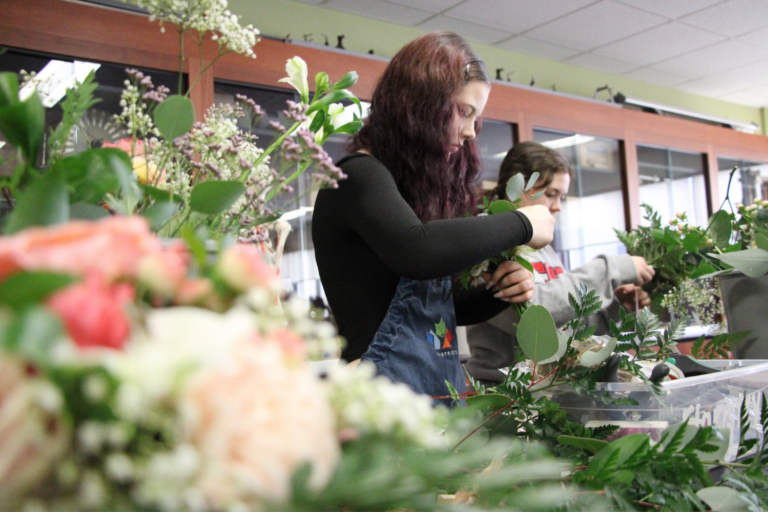
Finding balance and harmony has become increasingly challenging in today’s fast-paced and digitally driven world. The demands of work, family, and personal commitments can leave you feeling overwhelmed and disconnected from your true passion and inner self. However, playing a musical instrument is one activity that can restore balance and foster a sense of harmony. Whether you’re a novice or an experienced musician, playing an instrument can profoundly affect your physical, mental, and emotional well-being. This article will explore how playing an instrument can bring balance and harmony to your lifestyle.
Cognitive Enhancement
Recreating music is a mentally stimulating activity that simultaneously engages multiple brain areas. According to the seasoned musical teachers offering Singapore violin lessons, playing instruments requires hand-eye coordination, fine motor skills, memory recall, and reading and interpreting musical notation. Regular practice and training improve your cognitive abilities, enhancing memory, attention span, and problem-solving skills. Studies have shown that playing an instrument can improve overall IQ and academic performance. The mental benefits extend beyond the act of playing itself, as they can positively impact other areas of your life, such as work, academics, and creative thinking.
Emotional Expression
Whether playing a melancholy melody or an uplifting composition, the instrument becomes an extension of your emotions, allowing you to communicate and release feelings that may be difficult to express in words. This emotional outlet provides a healthy means of processing and understanding your emotions, enhancing self-awareness, and fostering a sense of emotional well-being. Playing an instrument gives you a direct channel for emotional expression. Music has a unique ability to express emotions and convey messages without words.
Mindfulness and Focus
Playing an instrument requires concentration, focus, and deep mindfulness. When you engage in playing, you are fully present at the moment, paying close attention to the music’s notes, rhythm, and nuances. This focused state of mind helps to quiet the constant chatter of everyday life and allows you to enter a state of flow where time seems to stand still. By immersing yourself in the music, you experience a sense of clarity and peace, enabling you to escape the stresses of the outside world and reconnect with yourself on a deeper level.
Music has long been recognized as a powerful tool for stress relief, and playing an instrument takes this benefit to a new level. As you play, your mind shifts from daily worries and anxieties to the rhythmic patterns and melodies you create. This shift in attention allows you to release tension and pent-up emotions, providing an outlet for self-expression and catharsis. Playing an instrument can be a form of meditation, helping to calm your mind, lower your heart rate, and reduce stress hormones. Creating music becomes a therapeutic experience that rejuvenates your spirit and brings a sense of balance and calmness to your overall well-being.
Self-Discipline and Time Management
Mastering an instrument requires dedication, self-discipline, and consistent practice. Regular practice sessions help you develop a routine and cultivate good time-management skills. Setting aside specific practice times, you learn to prioritize and allocate your time effectively. This disciplined approach applies to playing an instrument and spills over into other areas of your life, helping you become more organized and focused in your daily activities. The commitment to regular practice fosters a sense of accomplishment and personal growth, further enhancing your overall well-being.
Social Connection
Whether you join a band, or orchestra, or participate in jam sessions, playing with others allows you to connect with like-minded individuals who share your passion for music. Collaborative music-making not only enhances your technical skills but also fosters a sense of camaraderie, teamwork, and shared creativity. Interacting and collaborating with fellow musicians can create lifelong friendships and provide a sense of belonging within a community. Playing an instrument can also be a social activity that brings people together.
Personal Fulfillment and Joy
Perhaps the most significant aspect of playing an instrument is its sheer joy and personal fulfillment. Creating beautiful music, expressing yourself creatively, and witnessing your progress and growth as a musician is immensely gratifying. Playing an instrument allows you to tap into your innate creativity and connect with your authentic self. The sense of accomplishment and satisfaction derived from mastering a piece or performing in front of an audience is unparalleled. The joy and fulfillment you experience from playing an instrument can permeate all aspects of your life, bringing a profound sense of balance, harmony, and purpose.
Playing an instrument is a transformative activity that can bring balance and harmony to your lifestyle. It provides a means of self-expression, stress relief, and emotional release while stimulating cognitive function and enhancing self-discipline. The joy, personal fulfillment, and social connections that arise from playing an instrument contribute to a more balanced and harmonious life. Whether you’re a seasoned musician or a beginner, incorporating the practice of playing an instrument into your daily routine can profoundly affect your overall well-being. So pick up that guitar, sit at the piano, or grab your favorite instrument and let the power of music guide you to a more balanced and harmonious existence.












